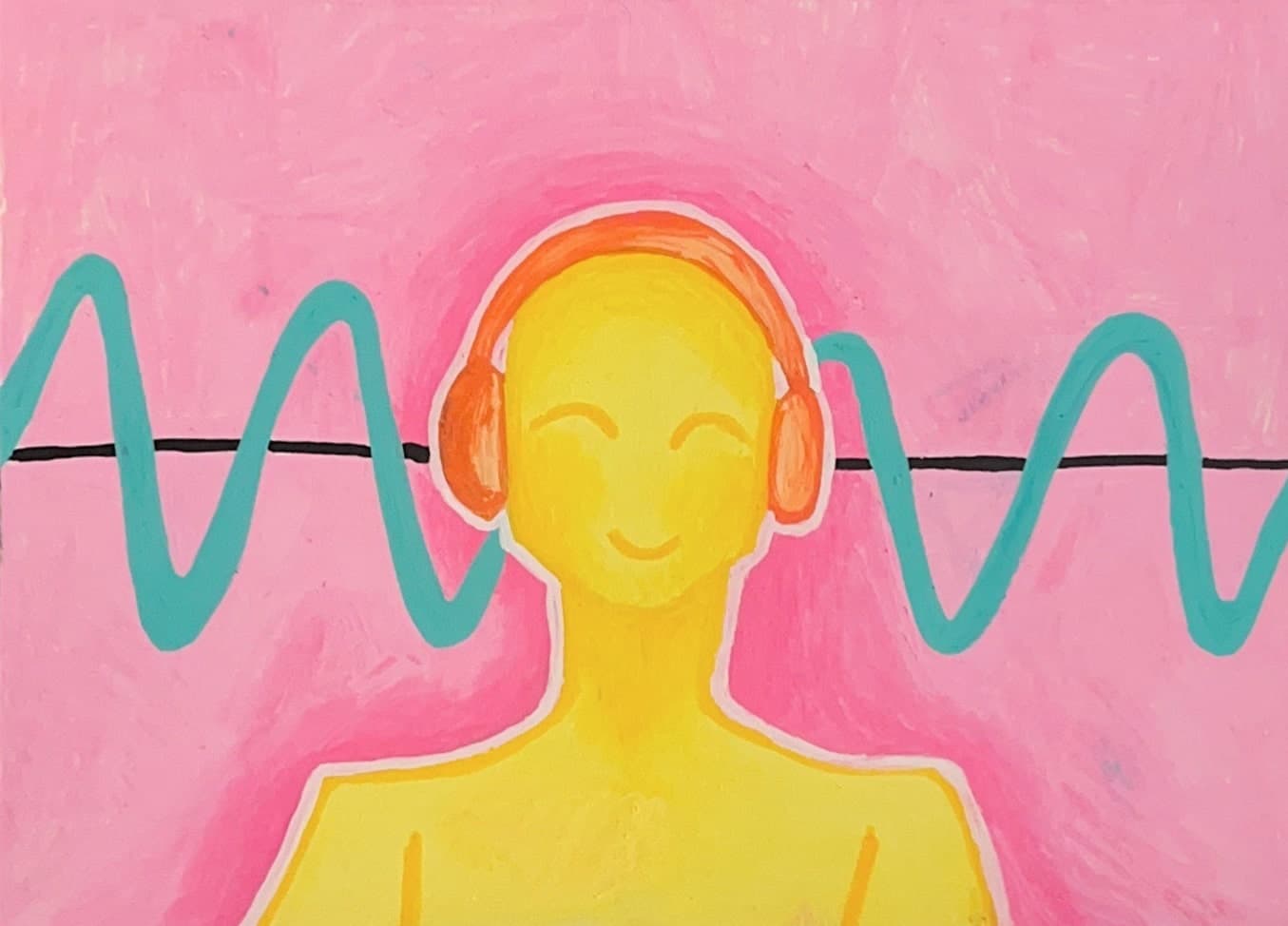
So what is music? According to Mr. Bonnar, a Léman Physics teacher, music is an ordered and purposeful arrangement of vibrations that usually follow a pattern. These vibrations travel through the air from the source of the music to the audience. This is true for all sounds; for example, when speaking, your vocal cords are creating vibrations through the air. These vibrations then reach the ear and are passed on to the nerves, which in turn pass it to the brain, where it is processed as music or sound. Now this is all pretty simple, however, this knowledge helps us understand how to create new devices, such as wireless headphones or cochlear implants, that can help make music accessible to everyone!
Have you ever been on the train listening to one of your favorite songs and wondered how am I hearing this when nobody else is? And how do we get the sound to pass through the air? Well, look no further than physics.
As any AirPods owner can testify, the first step is to connect the headphones to the phone using Bluetooth. Then, when you hit play on a song you want to listen to, your headphones receive electromagnetic waves via Bluetooth from your phone telling them what to play. Your headphones turn the digital data into an analog version of an electrical waveform (or the way the sound wave should look to produce the exact sound the music makes.) This signal first comes in contact with a voice coil, which hits the diaphragm ( the speaker-looking part of your headphones) causing it to move back and forth. This creates pressure waves in the air which allows our brain to interpret them as sound waves. As Mr. Bonnar said; “when I was a kid all the headphones had wires, when I was a kid there was no Wi-Fi and Bluetooth.” Headphones are constantly improving, so with innovations and creative new headphones, who knows what tomorrow holds?
Now why do we listen to music, why does it matter, and more importantly how can music help us? Well, we still do not know exactly why we listen to music, however, there are some theories.
According to Robert Zatorre, a neuroscientist at McGill University, one theory people have is that we evolved to recognize patterns to survive and that then this skill translated into us liking musical patterns. Zatorre explained that all music is a pattern and that as we listen we can guess what melodies, rhythms, and harmonies come next which produces a sense of certainty, making us like the music we can predict. This would also explain why some people do not like the music they are not exposed to early on.
Through time it has been proved that music releases dopamine in the brain, Dr. Zatorre found that dopamine’s production is the strongest when the music causes us to feel “chills”. However, the reason why our brains release dopamine as a reaction to music in the first place is still unknown. One theory is that music carries emotions. It does this through singing as well as instruments, allowing us to feel the way the artist specifically intended. Since we feel the same emotions expressed in the song, it creates an emotional connection to the song. As neuroscientist Jean-Julien Aucouturier, a researcher on the correlation of music and emotions at the French Institute of Science in Paris said; “The happiest I can make my voice, a piano or violin or trumpet can make it 100 times more happy in a way." This is due to, as he puts it, the ability of instruments to produce a wider range of notes than the human voice.
Regardless of the reason why we listen to music, listening to music has many positive effects on our health. Music affects our cytokines, production of immunoglobulin A, much of our immune system, and even our brain chemistry positively. According to a Neuropsychologist Ph.D., Daniel Levitin, who studies the neuroscience of music and its effects on our mental/physical health, “evidence-based part (of neuroscience’s relation to music) …there’s been a lot of pseudoscience and just a lot of anecdotes about music, but relatively little actual experiments – true experiments in science. … early evidence says that music can alter pain thresholds. It can increase immune system functions. There’s stronger evidence that it can affect mood and heart rate and respiration rate.” Other studies suggest that music is related to anxiety. Some theories suggest that music’s purpose is to be inducing pleasure in the listener, as well as the musician playing the piece. Additionally, it is believed that music was created as a safe form of passing time in an entertaining way.